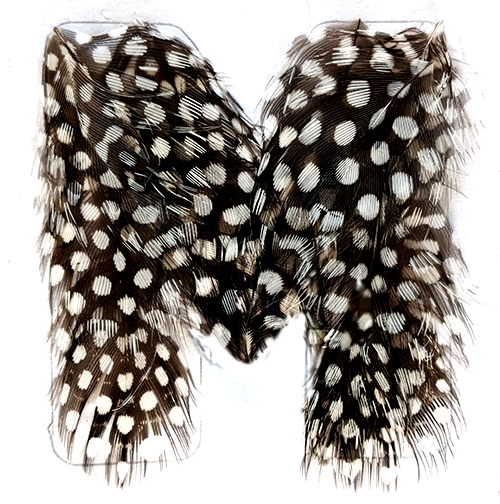Ander Monson
A labyrinth is said, etymologically, to be multiple because it contains many folds. The multiple is not only what has many parts but also what is folded in many ways. A labyrinth corresponds exactly to each level: the continuous labyrinth in matter and its parts, the labyrinth of freedom in the soul and its predicates.
Gilles Deleuze, The Fold
I’m not sure a labyrinth is multiple. The proper labyrinth, to use the current derivation, is unicursal: it has but one path to follow, though it bends. Hence the split of maze from labyrinth: mazes are multicursal, with dead ends and forks. A maze is made to lose you, get you lost. You can lose yourself in a labyrinth. Two hairs caught in this book’s spine bring it to life. One is probably a pet’s. The other’s human. Beard or something nether? It’s reddish, curled inward, secreted away in the gutter as the pages fold into the signature and are there stitched. Must I remind you that you have a body, reader? You are not just a brain, though you read Deleuze. I like to imagine you nude with Deleuze, pet on a lap around the room, considering your lap, now occupied with book. Reading is sexy reads the shirt I wear sometimes, and it is.
In this way you, former reader from whom I just recalled this text—a jarring reminder that there are others who also read, and read Deleuze, and are connected by desire: we both want & want this book—you and I are paired. Your hair here. I tucked in one of my own. Then are we one, just flipped and opened up? You and I are connected at this point, the point exactly of our brains in this moment sharing this sentence, this breaking of silence, this semiautomatic fan rattle hum. You are I, in this trench of I this rut of broken thought, such as it is, I made. The sentence is both silence and separation from it—unspoken unless you are speaking it, stitching your voice to mine, your locus voci with my own. The world has so many foci to consider, scattered everywhere on the ocean floor. Pick one up as you are moved to; now consider it, beach-washed conch, ring your world around it for a frozen moment, a silent omen, fold everything into it, those lovethoughts from a year ago, the frozen lemon slushy. Get lucky in this way exactly: anything folded back upon a point will echo that point, pair with it. Pare it all away if you can. This is what white space does: contains an echo, screens—as in a scrim—the page behind.
The brain is folded too. One thought pressed in on another, often without intention. A partial memory of a breast (perhaps yours?) superimposed on some hours spent playing Sentinel Worlds 1: Future Magic. A cruel word, a gruel of world, a drooling bird, your cat’s strange conversation with the sound of packing tape as it considers plucking that bird from the air and disapparating it. Bruce Weigl tells me something else from a dozen years ago in verse. I don’t know if I can trust him, if he’ll truss me up, dump me in the darkened water with a Christopher Davis poem, an old one like “Jojo’s” or “The Killer,” in which I might best be thought of as a blood and bubble trail through the water until you lose sight of me and the vector of my descent so that I am untraceable at last. A pencil lead leaves a rut, not just a dark mark, as it moves over and into a sheet of paper, which is why it cannot be completely effaced. We leave marks all along each other as we pass and pair and disconnect in discotheques. I fear it’s what we’re for.
To perceive may be to receive, to oculate, to orb, to parse to grok, to understand if there is—or to create—a pattern in it, Larry Levis, the plot against the giant, Susan Howe, or other Howes, operating on ice like Gordie. To iterate a thing is to make a fold in language, to damage or construct by duplication, knowing then that this thing must exist again in another couple dozen pages, a few punctuation marks away, a breath a break, a day away. To fold a text, to couple up a pair of words around whatever point, to copulate a world or worlds into being, to compile a worm from segments, to reconstruct a body from memory, to be so bold, in a moment like this one, is to become.
ANDER MONSON is the author of six books, including the forthcoming book in a box, Letter to a Future Lover (nonfiction, Graywolf, 2015), a website, a decoder wheel, two chapbooks, and other paraphernalia. He edits the magazine DIAGRAM and the New Michigan Press.



